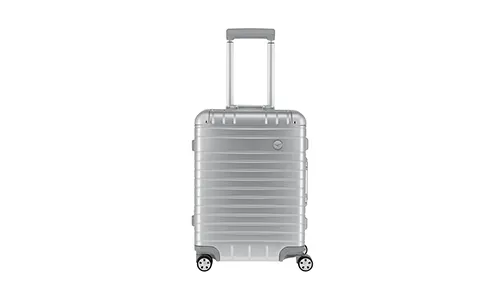As if built on a laundry:
a city of vapours and vents
Mao Ono and Miya Tsuki are at the supermarket buying some cold drinks. Barefoot in slides and dressed in kimonos, they quickly grab a packet of bath salts before paying for their purchases.
In Beppu, southern Japan, you see it every day: people in bathrobes, draped with towels, sitting in hotel lobbies and emerging from shops carrying bags of flower essence. What’s regarded as luxury elsewhere is an ordinary activity here. Beppu is the bathing capital of Japan. For locals, it’s not a proper day if you haven’t had a steam bath.
Gaze across the old town of Kannawa and you’ll be amazed to see water bubbling everywhere and clouds of steam rising from the streets. Beppu resembles nothing more than a giant pot of boiling water.


Japan, the Land of the Rising Sun, has many attractions. Sprawling Tokyo. Mount Fuji and the famous cherry blossom festivals. But little Beppu in Ōita Prefecture is a record-breaker in its own right. It’s the hottest bathing resort in Nippon, the most splendiferous steam oasis in Asia.
There are pits of boiling mud, blue pools and effervescent ponds emitting bubbles of volcanic gas. Best of all: Beppu is the most wonderful place for bathing!
This is why Mao Ono and Miya Tsuki have disappeared again – into one of the city’s nearly 200 bathhouses. Behind bamboo groves and burbling fountains, sandalwood gates and papery screens, pure bliss awaits: hot water from the depths of the earth.
Take a short walk through the streets and you’ll soon see for yourself: steam hisses from between paving stones, curls out of cauldrons behind houses, billows out of pipes bending from the roofs. People in Beppu take every opportunity to put the hot breath of their city to good use. Here, beneath the Japanese island of Kyūshū, the earth sends up a rare blessing: heat – in the form of boiling hot water.
Step onto the street and you promptly encounter a cloud of warmth emanating from the deep. Windowpanes mist over, lantern posts drip. Homemade notices even warn: ‘Caution, hot steam!’ Touch the pavement with your hand and you’ll be amazed to find the stone as warm as a heated floor.


The city is perched above some 3,000 hot springs. Day in, day out, the geothermal foundry beneath Beppu produces as much steam as Yellowstone National Park. Nature has consolidated ten percent of Japan’s hot springs exactly here.

The city is perched above some 3,000 hot springs. Day in, day out, the geothermal foundry beneath Beppu produces as much steam as Yellowstone National Park. Nature has consolidated ten percent of Japan’s hot springs exactly here.
The earth has designed what you could call a subterranean heating system, which blasts over 100,000 litres of scalding water upward every minute. Beppu is a geothermal hotspot dotted with volcanic vents that shoot steam into the sky. Steam enriched with minerals such as sodium, calcium, magnesium chloride and hydrogen carbonate. The effect on your nose is immediate: half the town smells of sulphur and rotten eggs.
But it’s all extremely good for your health. Hydrogen carbonate naturally neutralizes acid, which is why people in Beppu inhale the steam. It’s also said to heal skin complaints, alleviate digestive disorders and soothe sore muscles. But most of all, bathing in the hot breath of the earth enhances your well-being. Everyone here swears by it. Bubbling over with enthusiasm, they insist that Beppu is balsam for the soul, medicine for the body.
The earth has designed what you could call a subterranean heating system, which blasts over 100,000 litres of scalding water upward every minute. Beppu is a geothermal hotspot dotted with volcanic vents that shoot steam into the sky. Steam enriched with minerals such as sodium, calcium, magnesium chloride and hydrogen carbonate. The effect on your nose is immediate: half the town smells of sulphur and rotten eggs.
But it’s all extremely good for your health. Hydrogen carbonate naturally neutralizes acid, which is why people in Beppu inhale the steam. It’s also said to heal skin complaints, alleviate digestive disorders and soothe sore muscles. But most of all, bathing in the hot breath of the earth enhances your well-being. Everyone here swears by it. Bubbling over with enthusiasm, they insist that Beppu is balsam for the soul, medicine for the body.

The Japanese word onsen is used to describe various hot spring spas, bath houses and wellness temples in the city. Some are public and free of charge, but hotels and guesthouses have their own onsen, too. Guests can choose from many different sizes and types of thermal bath in which to relax body and soul for a few hours, including a private hot spring. Decked out in kimonos and slippers, they stride through the hallowed houses beyond whose gates blue pools shimmer, waterfalls sparkle – and steam puffs from pipes.
Mao and Miya stretch out luxuriously in a stone bath whose azure water has a temperature of almost 40°C. ‘It’s warmer than a bathtub’, says Miya, signalling to her friend that she’s ready to climb out: ‘I’m starting to feel dizzy.’ There are showers and footbaths right next door, and Japanese footstools and vats containing any number of herbal tinctures.
The Beppu Ogura is one of the city’s more elegant spas. It has seven private baths nestled into the hillside, surrounded by quiet rooms, changing rooms and hotel rooms with minimalist furnishings. Standing beside a polished teak table, you enjoy a view across the city.
The Japanese word onsen is used to describe various hot spring spas, bath houses and wellness temples in the city. Some are public and free of charge, but hotels and guesthouses have their own onsen, too. Guests can choose from many different sizes and types of thermal bath in which to relax body and soul for a few hours, including a private hot spring. Decked out in kimonos and slippers, they stride through the hallowed houses beyond whose gates blue pools shimmer, waterfalls sparkle – and steam puffs from pipes.
Mao and Miya stretch out luxuriously in a stone bath whose azure water has a temperature of almost 40°C. ‘It’s warmer than a bathtub’, says Miya, signalling to her friend that she’s ready to climb out: ‘I’m starting to feel dizzy.’ There are showers and footbaths right next door, and Japanese footstools and vats containing any number of herbal tinctures.
The Beppu Ogura is one of the city’s more elegant spas. It has seven private baths nestled into the hillside, surrounded by quiet rooms, changing rooms and hotel rooms with minimalist furnishings. Standing beside a polished teak table, you enjoy a view across the city.
Later, the two friends wander through the old town. Soaking in hot springs makes you hungry. Soon, they find themselves in front of a stand that’s steaming like a witch’s cauldron. Metal baskets hold corn-on-the-cob, eggs, cucumbers, potatoes, carrots, prawns and raw pork, all prepared exclusively on nature’s hob – by virtue of hot steam from the bowels of the earth.
Mao and Miya order corn, prawns, steamed white cabbage – all perfectly salted, delicious and fat-free. Prepared without a drop of oil, herbs or spices, a delicacy suited perfectly to Beppu’s simple, healthy tastes.
The omnipresent steam shapes life in the city. In many places there are public footbaths where visitors and residents dip their feet in hot water. Things bubble and burble left, right and centre. The earth expels moisture morning, noon and night, as if the city had been built over an industrial laundry.


Beppu is also home to seven ‘hells’, known as jigoku, where hot water exits the ground in a particularly beautiful way. These natural settings have impressive names such as Blood Pond Hell or White Pond Hell.
In the hills above the city, a beautiful pool shimmers cobalt blue. The water is 98°C when it gushes out of the ground, and the Japanese boil eggs in it. Other pools are milky white or clay red. One is home to crocodiles, which don’t seem to mind the hot water. Elsewhere, geysers explode skyward. At Tatsumaki Jigoku, for instance, a jet of water with a temperature of more than 100°C blasts into the air from cracks in the earth every 40 minutes.


Shuto Yoji is a facility manager at Hyotan Onsen. He knows all about the health benefits of different qualities of water. The traditional spa has waterfall showers, steam baths and an outdoor pool, and serves fruit and boiled eggs in the courtyard. Dressed in a black suit, Yoji is always at the centre of action, checking the temperature of the spa’s own hot spring, determining pH levels and making sure the tanks and pumps are working properly.
None of Hyotan’s eight baths is alike, says Yoji. Each hot spring has its own temperature, a different pH and distinct concentration of salt. ‘The water is good for the skin, supports the circulation and calms the nerves. That’s due to the high pH of the water in Beppu, which is also very salty.’
The city is like a purification plant for heart and mind. Yasukiyo Yamamoto can tell you how invigorating that can be. Yamamoto has clear blue eyes, he is spry and fit – and 100 years old. What has he done to stay healthy at such a ripe old age? ‘I’ve always walked a lot, and still do all of my errands on foot’, he says. ‘I also never completely eat my fill, I stop before I’ve had enough.’
Shuto Yoji is a facility manager at Hyotan Onsen. He knows all about the health benefits of different qualities of water. The traditional spa has waterfall showers, steam baths and an outdoor pool, and serves fruit and boiled eggs in the courtyard. Dressed in a black suit, Yoji is always at the centre of action, checking the temperature of the spa’s own hot spring, determining pH levels and making sure the tanks and pumps are working properly.
None of Hyotan’s eight baths is alike, says Yoji. Each hot spring has its own temperature, a different pH and distinct concentration of salt. ‘The water is good for the skin, supports the circulation and calms the nerves. That’s due to the high pH of the water in Beppu, which is also very salty.’
The city is like a purification plant for heart and mind. Yasukiyo Yamamoto can tell you how invigorating that can be. Yamamoto has clear blue eyes, he is spry and fit – and 100 years old. What has he done to stay healthy at such a ripe old age? ‘I’ve always walked a lot, and still do all of my errands on foot’, he says. ‘I also never completely eat my fill, I stop before I’ve had enough.’
Four years ago, Yamamoto moved to Beppu from Hiroshima because of the hot springs. He visits a thermal bath twice a day and soaks for a long time. ‘It keeps you young’, he says. ‘It keeps you alive.’
That’s all? He sleeps a lot, he says, at least 12 hours a day. Yamamoto offers his visitors a glass of tea. There are plants in the courtyard, and two baskets of steaming vegetables. ‘There’s something else’, he adds. ‘When I go out into the street, I speak to people. I say hello and have a little chat. How are you? How are the children? That’s what it comes down to in the end, isn’t it? Showing care for others and cultivating exchange. Not ill will or hatred. I want to smile, I try to be friendly.’
The centenarian stands up, he’s ready for another steam bath. Grabs a towel and marches down the street. Like everyone else in Beppu, he’s off for his daily dose of medicine.
Hot water from the bowels of the earth.


Author


Photographer


Aluminium Collection
Travel companion

Discover the world with us





















